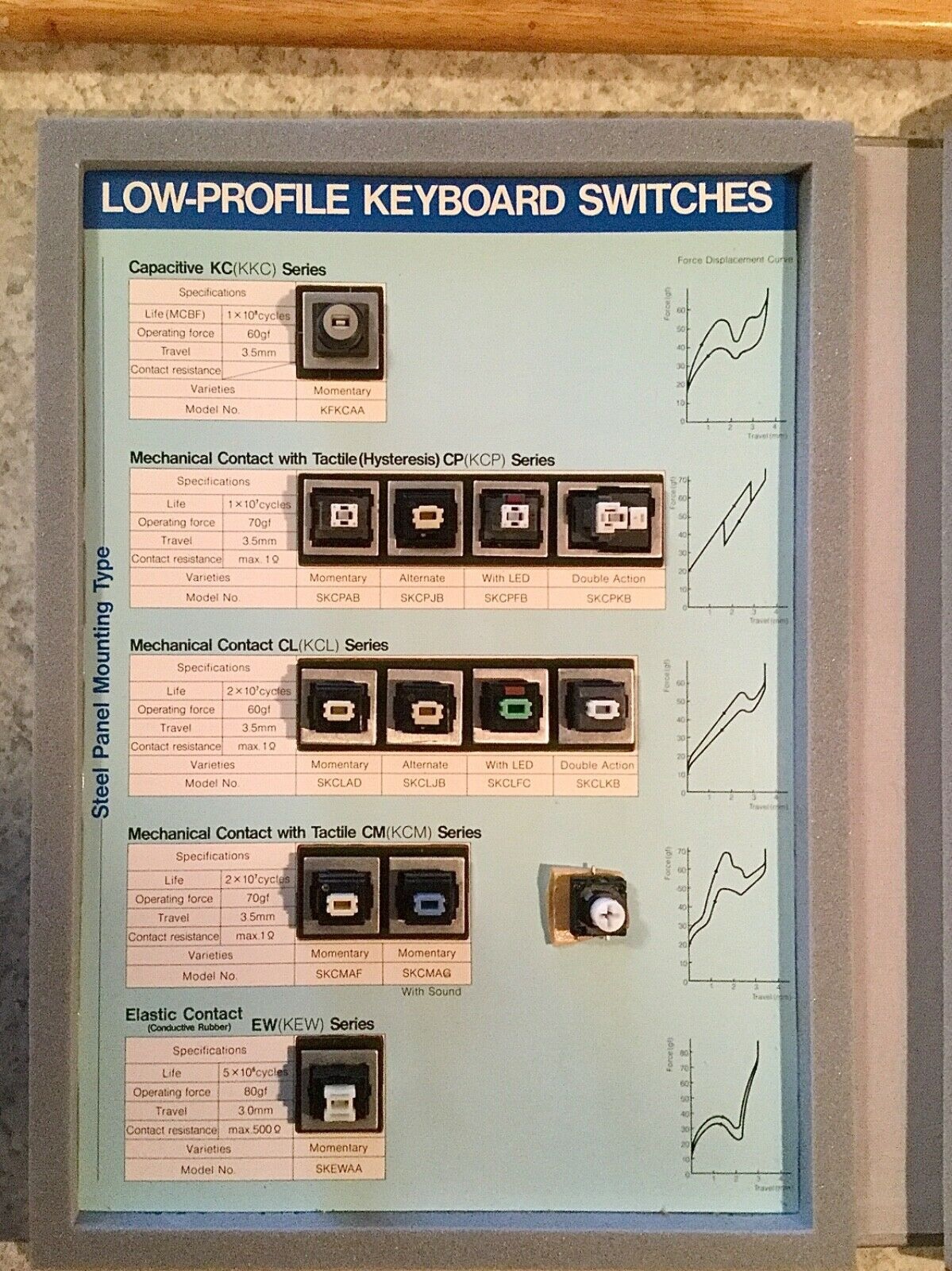This is an old revision of the document!
Alps SKCM Beige
| Alps SKCM Beige | |
 |
|
| Manufacturer | Alps Electric |
| Family | Alps SKCM/SKCL series |
| Part Number | SKCMAF |
| Switch Type | Tactile |
| Travel | 3.5mm |
| Sense method | Metal contact |
| Mount | Plate mount |
| Rated lifetime | 20 million cycles |
| Quoted operating force | 70gf |
Alps SKCM Beige is a tactile switch in the first generation of the Alps SKCM/SKCL Series.
Naming
This switch has been historically called “SKCM Cream” or “undamped cream” by the community. Some call the stem color “ivory” which unfortunately conflicts with Alps SKCM Ivory, which has documented evidence for the stem color in the form of the 1991, 1993 and 1994 Alps catalogs. SKCM Ivory has also previously been called “Cream Damped”, which contributes to the confusion. Therefore, for this wiki, we have opted to revert the name to that originally chosen by mousefan many years ago, which is “beige”.
Characteristics
The switch follows the general characteristics of the SKCM family, consisting of an upper and lower housing, contact module, stem, spring and a leaf spring for generating the tactile event.
As a first generation SKCM/SKCL switch, the upper housing always has slits (colloquially referred to as the “pine” variant). Similar to other first generation switches, the only Alps branding on the switch is the older Alps logo on the bottom of the lower housing.
The stem, which is a beige or cream color, was lubricated at the factory.
The tactile feedback is generated with a leaf spring that is situated on the opposite side of the housing to the contact module. There were at least two variations of this leaf spring. Alps SKCM Beige, like all SKCM/SKCL series switches, uses a contact module to register the keypress. This sits in the housing on the side with visible notches.
Additional Information
The switch was likely in production from 1985 to around 1989. Tall grey contact modules are most common. Variations in stem dye lots were commonplace and should not be taken as evidence of some instance of the switch being better than another.
The leaf spring that generates the tactile event had at least one revision. The original form of this leaf spring had two wide side tabs and no bend at the bottom, as well as appearing visually to be made from a different material1). The more common form has four side tabs, similar to other tactile switches in the family.

